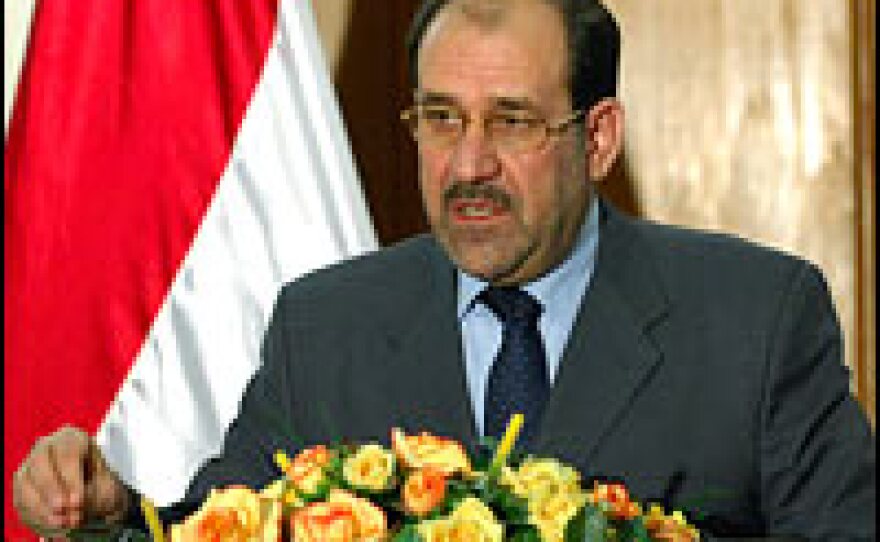Iraqi Prime Minister Nouri al-Maliki came to power as a compromise candidate with the help of Muqtada al-Sadr, the radical anti-American cleric whose followers are behind much of the sectarian violence that continues to plague Iraq.
The United States is counting on Maliki to take responsibility for securing and governing Iraq, but he has blocked U.S. attempts to crack down on Sadr's militia, the Mehdi Army.
Maliki is a leader of Dawa, a Shiite political party with a long history of opposition to Saddam Hussein. However, that opposition proved fatal to many of its leaders.
In one chilling example, in 1982, Dawa members attempted to assassinate Saddam in the small town of Dujail, north of Baghdad. In response, hundreds of people were rounded up and sent to camps, and huge swaths of farming land were destroyed. Nearly 150 people were tortured and executed, some of them as young as 12. That retribution led to the death sentence that Saddam currently faces.
As a result of Saddam's campaign against Dawa, most of the party's remaining leaders were forced to flee the country. Maliki himself was sentenced to death in 1980 and fled first to Iran and then Syria. He only returned to Iraq after Saddam’s fall in 2003.
While the Dawa party has a long history in Iraq, in many ways, it has become a vestige of the past. It has been upstaged by people, including Sadr, who have a far larger grassroots movement because they didn't flee the country, remaining there for the decades of Saddam's rule.
Maliki himself is not a charismatic politician. He came to power only after becoming a compromise candidate following months of political wrangling after the Iraqi elections in January 2005. The interim prime minister, Ibrahim al-Jaafari, also a member of the Dawa party, was considered ineffectual by many in Iraqi politics.
There are rumors in Iraqi circles of a potential military or political coup against Maliki. But at the moment, the other political parties in Iraq don't have the votes to remove him from power. That would require a two-thirds majority in the parliament.
Maliki has repeatedly demanded that he be given more power over Iraq's military. But his effectiveness is much in doubt. During the summer of 2006, the American military made a push into Baghdad, clearing and securing different areas of the capital and then turning them over to the Iraqi security forces that Maliki is in charge of.
However, the infectiveness of Iraqi forces doomed the effort. As soon as U.S. forces left, the neighborhoods quickly descended once again into the cycle of sectarian violence that has become the daily story of Iraq.
Copyright 2022 NPR. To see more, visit https://www.npr.org. 9(MDAzMjM2NDYzMDEyMzc1Njk5NjAxNzY3OQ001))







